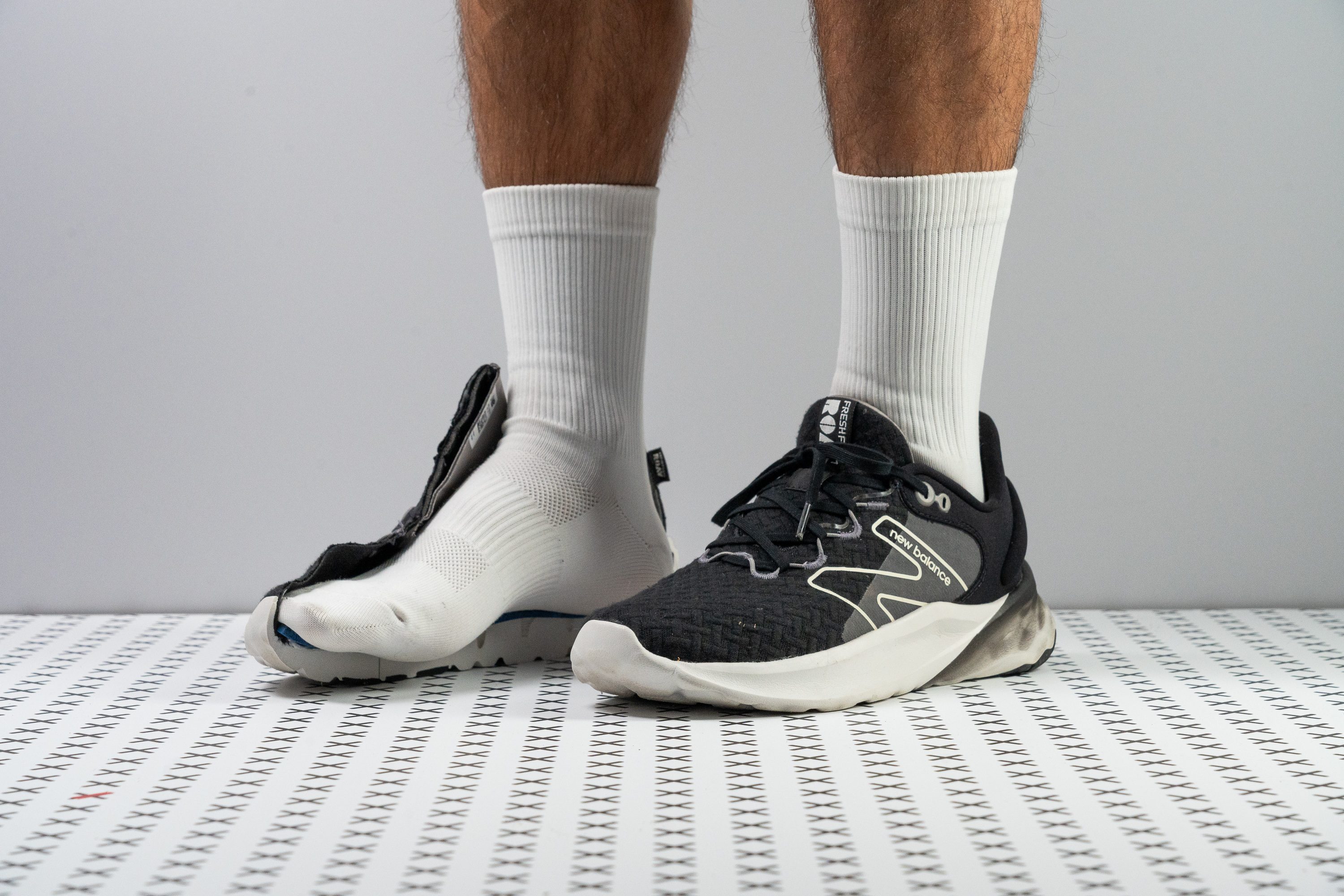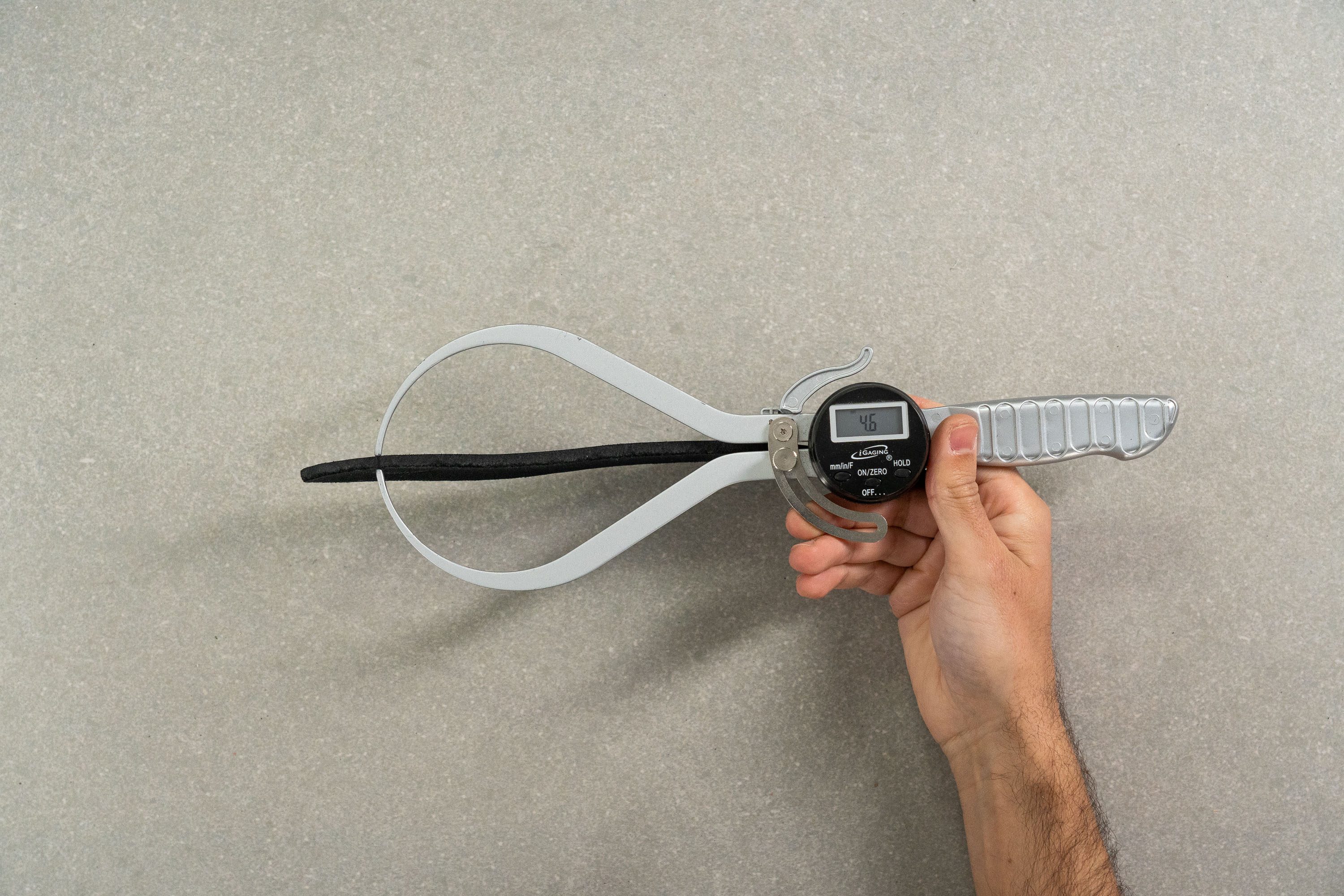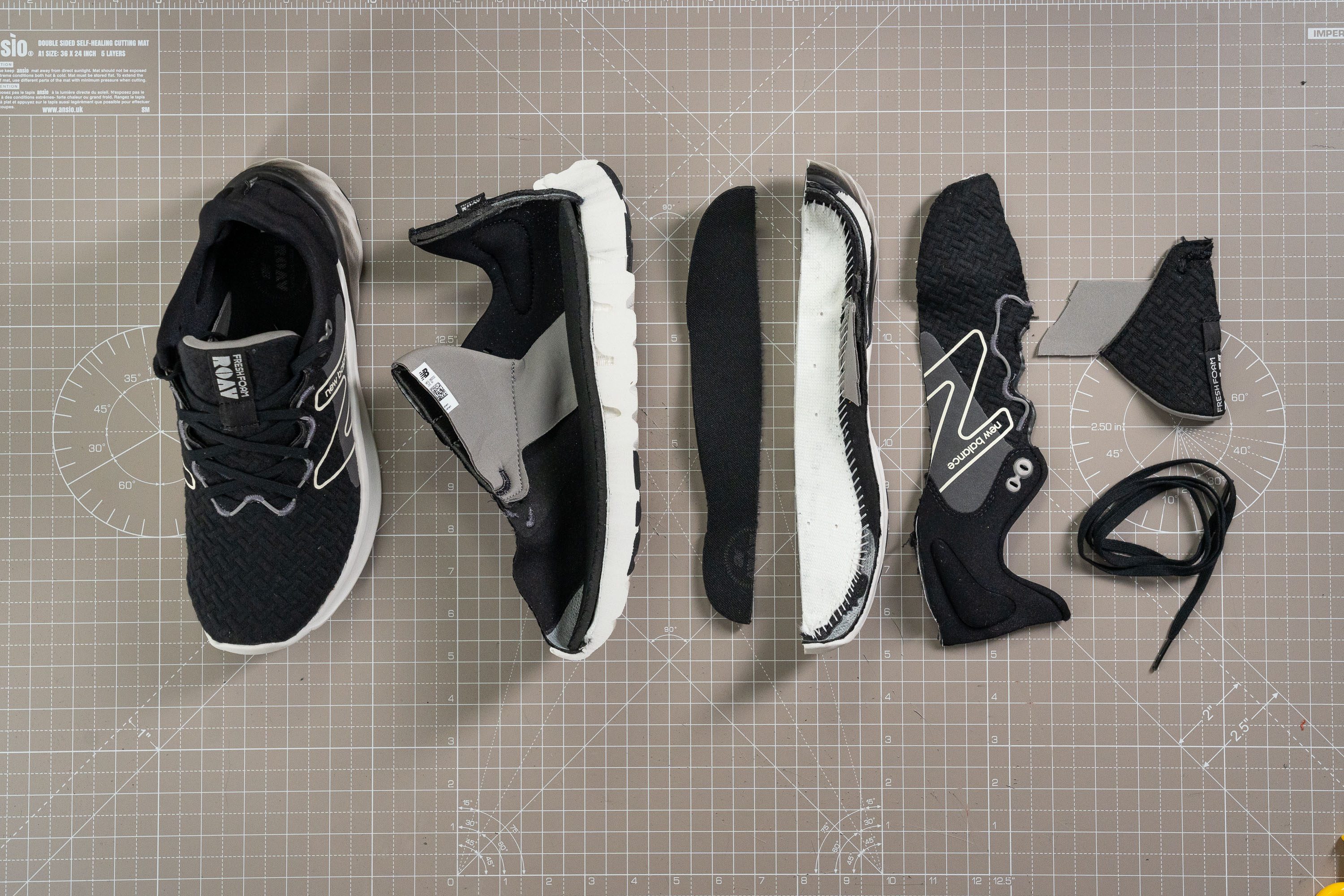Our verdict
- Top pick in best New Balance running shoes (2023)
Pros
- Very light
- High-quality materials
- Versatile for running and gym
- Wallet-friendly
- Lots of colors available
- Works for daily life too!
- Awesome traction!
Cons
- Not for wide feet
- Durability is not great
Audience verdict
Comparison
The most similar running shoes compared
+ + Add a shoe | |||||
|---|---|---|---|---|---|
| Audience score | 79 Good! | 70 Bad! | 87 Great! | 87 Great! | |
| Price | $85 | $70 | $110 | $125 | |
| Pace | Daily running | Daily running | Daily running | Daily running | |
| Shock absorption | Moderate | Low | - | Moderate | |
| Energy return | Moderate | Moderate | - | Low | |
| Traction | High | Moderate | - | Moderate | |
| Arch support | Neutral | Neutral | Neutral | Neutral | |
| Weight lab Weight brand | 8.4 oz / 238g 9.1 oz / 258g | 8.5 oz / 242g 8.7 oz / 246g | 9 oz / 254g 9.4 oz / 266g | 8.2 oz / 232g 8.5 oz / 241g | |
| Lightweight | ✓ | ✓ | ✗ | ✓ | |
| Drop lab Drop brand | 7.2 mm 8.0 mm | 7.7 mm 8.0 mm | 6.0 mm 8.0 mm | 6.4 mm 6.0 mm | |
| Strike pattern | Mid/forefoot | Mid/forefoot | Mid/forefoot | Mid/forefoot | |
| Size | Slightly small | True to size | Slightly large | True to size | |
| Midsole softness | Balanced | Soft | Balanced | Balanced | |
| Difference in midsole softness in cold | Small | Big | Small | Big | |
| Toebox durability | - | Bad | Bad | Good | |
| Heel padding durability | - | Bad | Decent | Decent | |
| Outsole durability | - | Good | Good | - | |
| Breathability | Warm | Moderate | Warm | Moderate | |
| Width / fit | Narrow | Medium | Medium | Narrow | |
| Toebox width | - | Medium | Medium | Narrow | |
| Stiffness | Moderate | Flexible | Stiff | Moderate | |
| Torsional rigidity | Flexible | Flexible | Flexible | Moderate | |
| Heel counter stiffness | Flexible | Flexible | Flexible | Flexible | |
| Heel lab Heel brand | 32.2 mm | 28.1 mm | 30.2 mm 27.0 mm | 30.4 mm 26.0 mm | |
| Forefoot lab Forefoot brand | 25.0 mm | 20.4 mm | 24.2 mm 19.0 mm | 24.0 mm 20.0 mm | |
| Widths available | NormalWideX-Wide | NormalWideX-Wide | Normal | NormalWide | |
| Orthotic friendly | ✓ | ✓ | ✓ | ✓ | |
| Season | Winter | All seasons | All seasons | All seasons | |
| Removable insole | ✓ | ✓ | ✓ | ✓ | |
| Ranking | #333 Bottom 13% | #379 Bottom 1% | #169 Top 45% | #160 Top 42% | |
| Popularity | #157 Top 41% | #18 Top 5% | #311 Bottom 19% | #67 Top 18% |
Cushioning
Shock absorption
The Roav V2 delivers moderate cushioning, with 113 SA in the heel and 98 SA in the forefoot. While this might not satisfy fans of ultra-plush shoes, it caters to those who enjoy a lower-to-the-ground, protection-light feel.
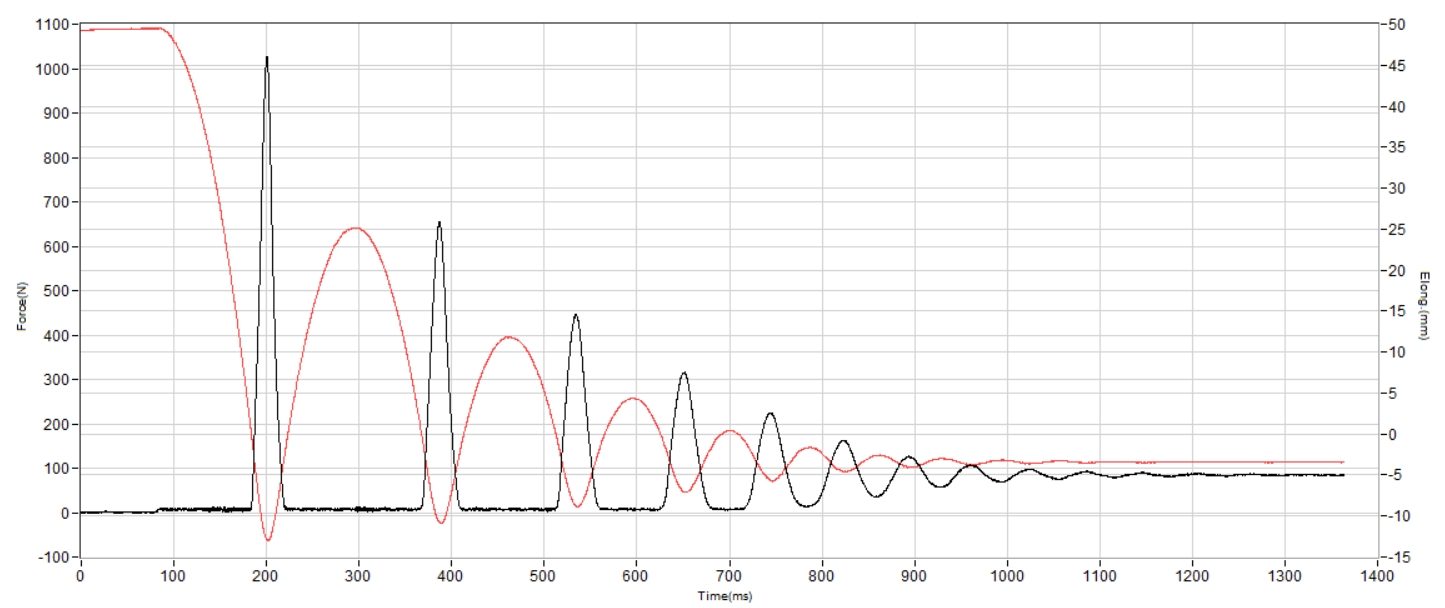
| Fresh Foam Roav V2 | 113 SA |
| Average | 130 SA |
Energy return
Energy return falls slightly below other daily trainers, but considering the sub-100-dollar price tag of the Roav v2, it's no shock. In fact, the 55.6% we recorded is a decent result for its price point.
| Fresh Foam Roav V2 | 55.6% |
| Average | 58.6% |
Size and fit
Size
New Balance Fresh Foam Roav V2 fits slightly small (55 votes).
Traction / Grip
Traction test
Despite the lack of a full-length rubber outsole and plenty of exposed foam, the Fresh Foam Roav v2 surprised us as a wet-day-ready running shoe!
With rubber pods placed in strategic areas, this NB shoe returned a solid friction score of 0.56 in our SATRA TM144 test. That makes it grippy enough for sharp turns and faster paces even on slick concrete.
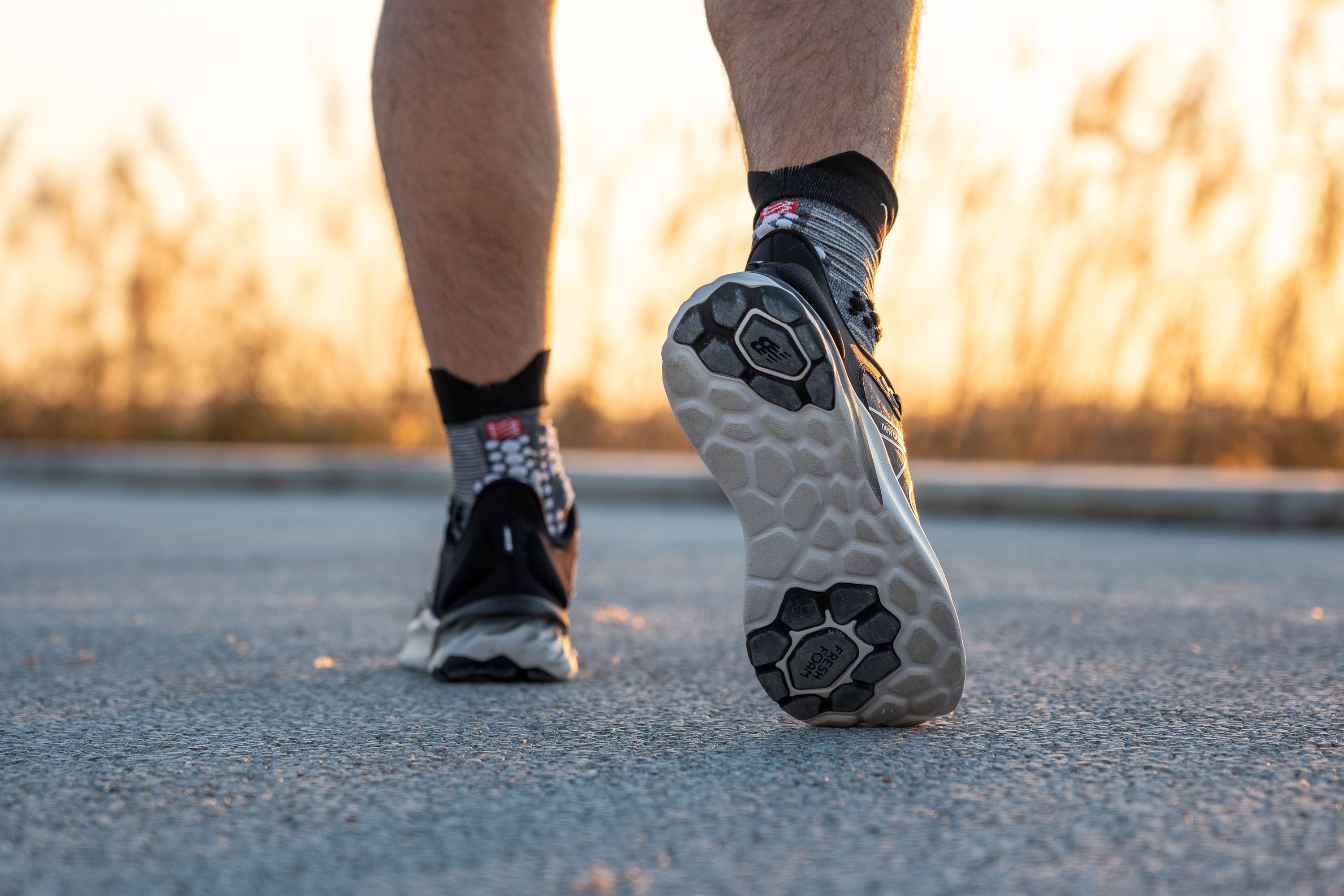
| Fresh Foam Roav V2 | 0.56 |
| Average | 0.49 |
Flexibility / Stiffness
We found the Roav v2 to be sufficiently flexible in the forefoot to maintain smooth and seamless transitions when running and walking.
At 13.7N, we measured that it actually needs less force to bend by 30 degrees than the average running shoe.
| Fresh Foam Roav V2 | 13.7N |
| Average | 15.3N |
Who should buy New Balance Fresh Foam Roav v2
Get this shoe if you are an entry-level in the world of running, better yet if a heel-striker, and/or you want something reliable, light, and comfortable to bring to the gym or for everyday life.
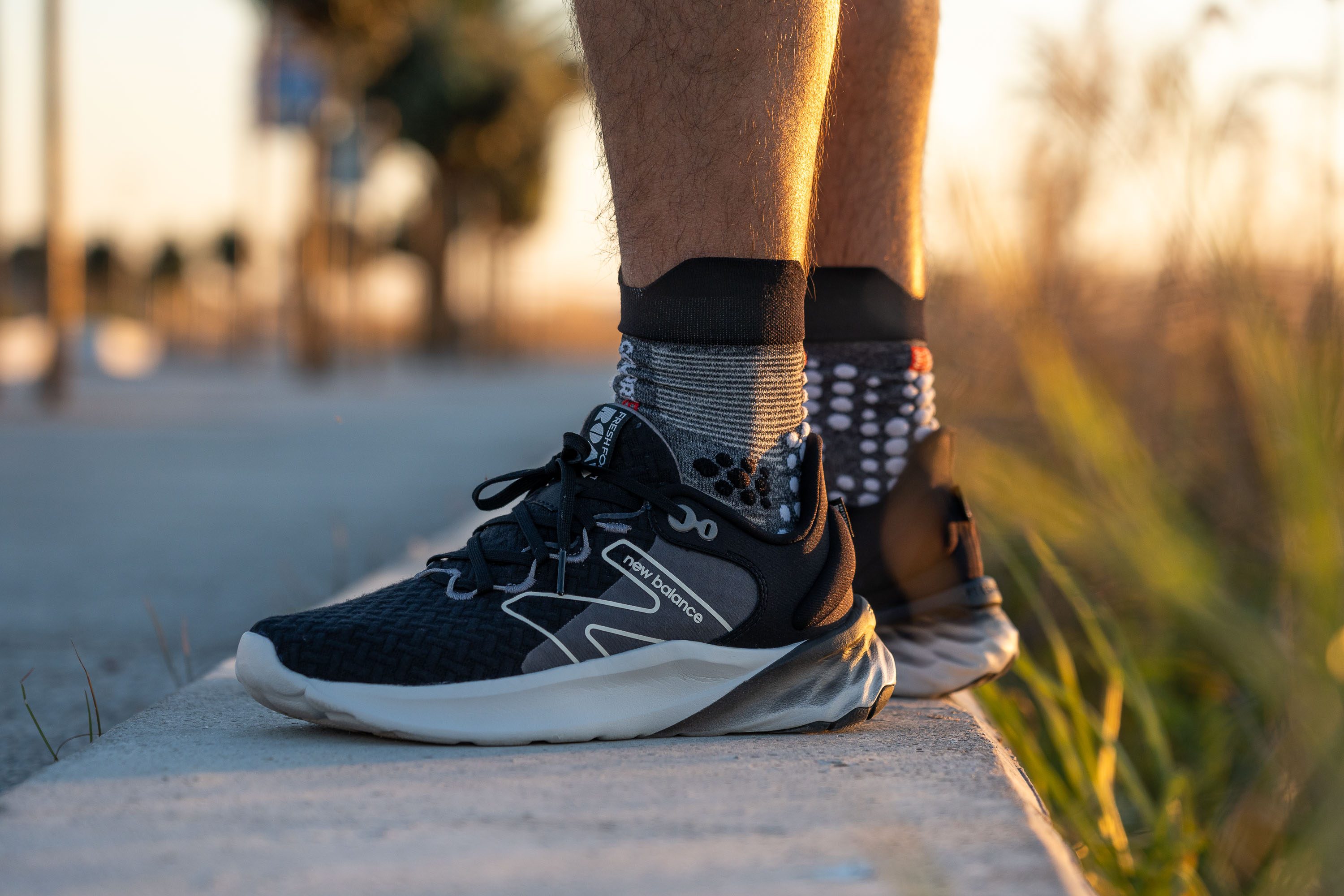
Who should not buy it
Don’t buy this shoe if you have wide feet. We think you should consider the New Balance Fresh Foam More v3 instead.
There are of course better running shoes out there, but if your priority is saving some money, it is hard to beat.
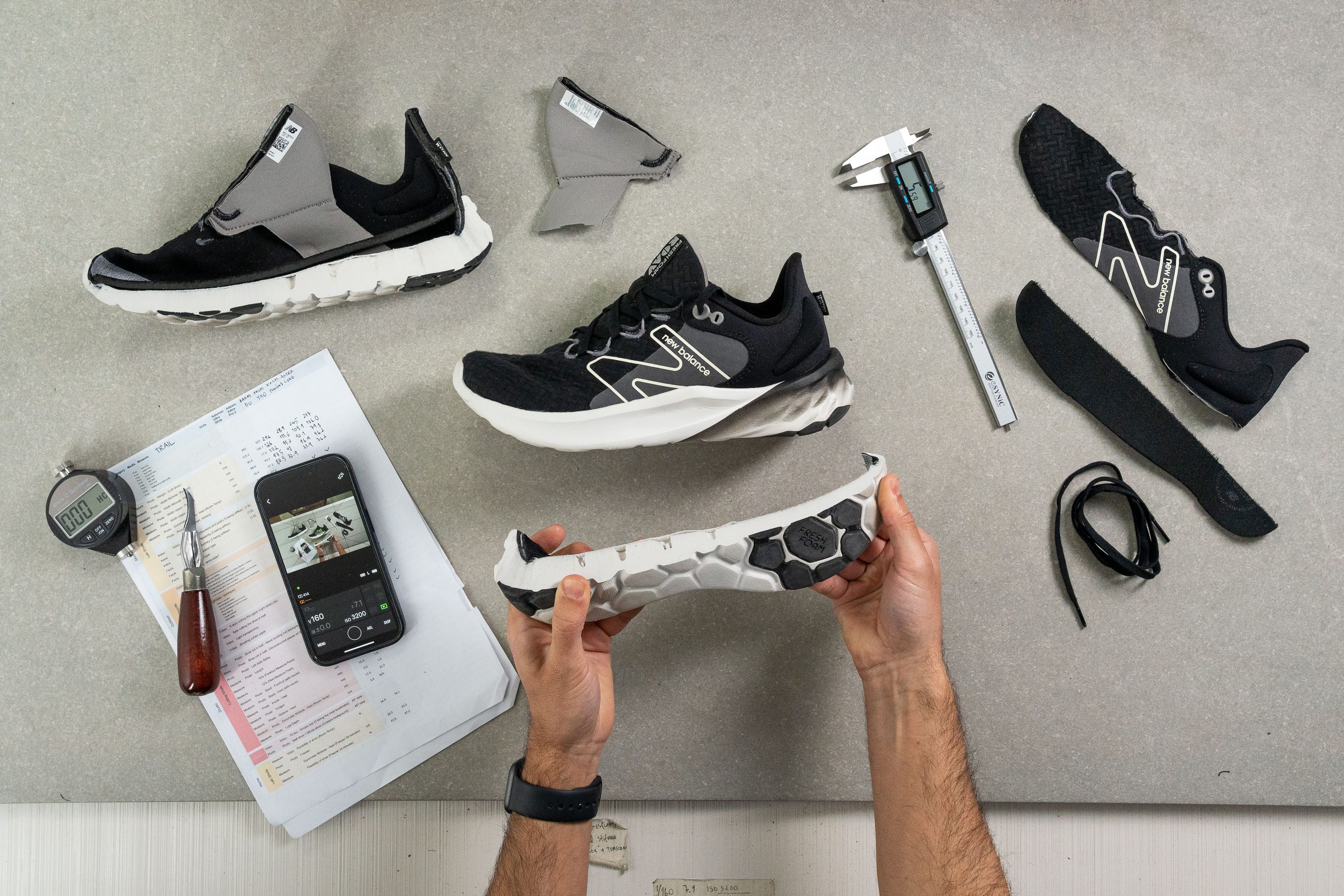
Breathability: not there yet
Based on our smoke-pumping machine test, the upper is not very airy and therefore this shoe is not ideal for warm days.
In our tests, breathability scored just 1 out of 5. As the video above shows, very little smoke comes out. The shoe's poor breathability was also confirmed in the transparency test seen below: the light from the lamp does not pass through the mesh.
The midsole is THE reason to buy it
In our opinion, Fresh Foam is the shoe's biggest highlight. It is very bouncy, comfortable, and responsive.
In our lab, we found that the foam is not super soft though. The durometer shows 26.5 HA which is 10% firmer than the average of road running shoes. It doesn't mean that the cushioning is firm though; we found it to be well-balanced.

Midsoles tend to get firmer in colder temperatures. In order to simulate cold-weather conditions, we put the shoe in the freezer for 20 minutes and the Roav v2 got 24.5% firmer. For reference, the average is 27.1%.
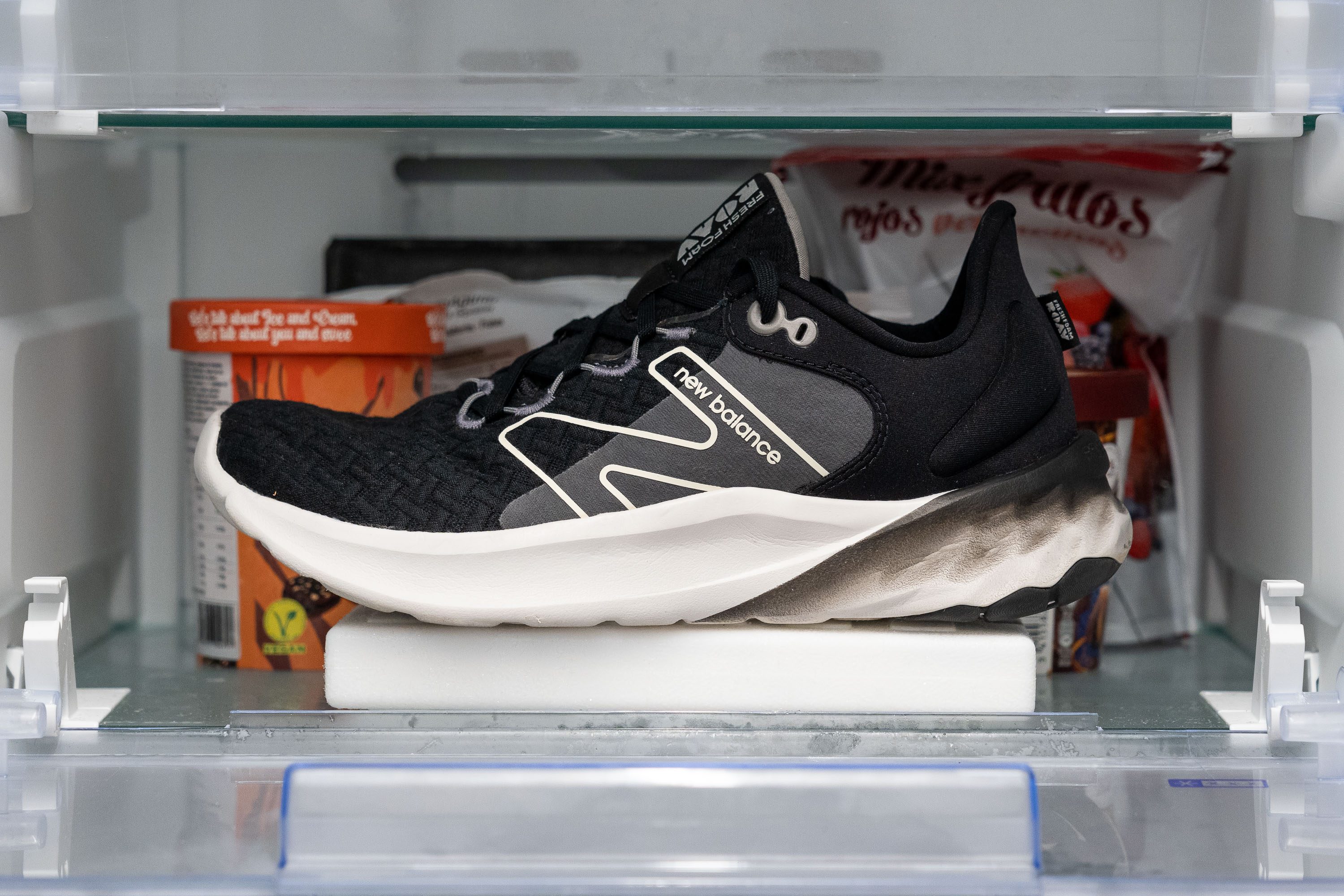
Comfy feel in the New Balance Roav v2
The shoe creates a very enjoyable experience for the foot with its interiors.
The heel area is well-padded and provides a great lockdown. We tested the heel stiffness and it scored 2 out of 5, which means it's flexible.
We also liked the sock-like foot insert that cradled our feet.
All in all, after wearing this New Balance shoe all day, we didn't even realize when we took them off! That's how natural it felt on the foot.
Not ideal for wide feet
There's not much room in the shoe's toebox but it was just enough for our medium-width feet.
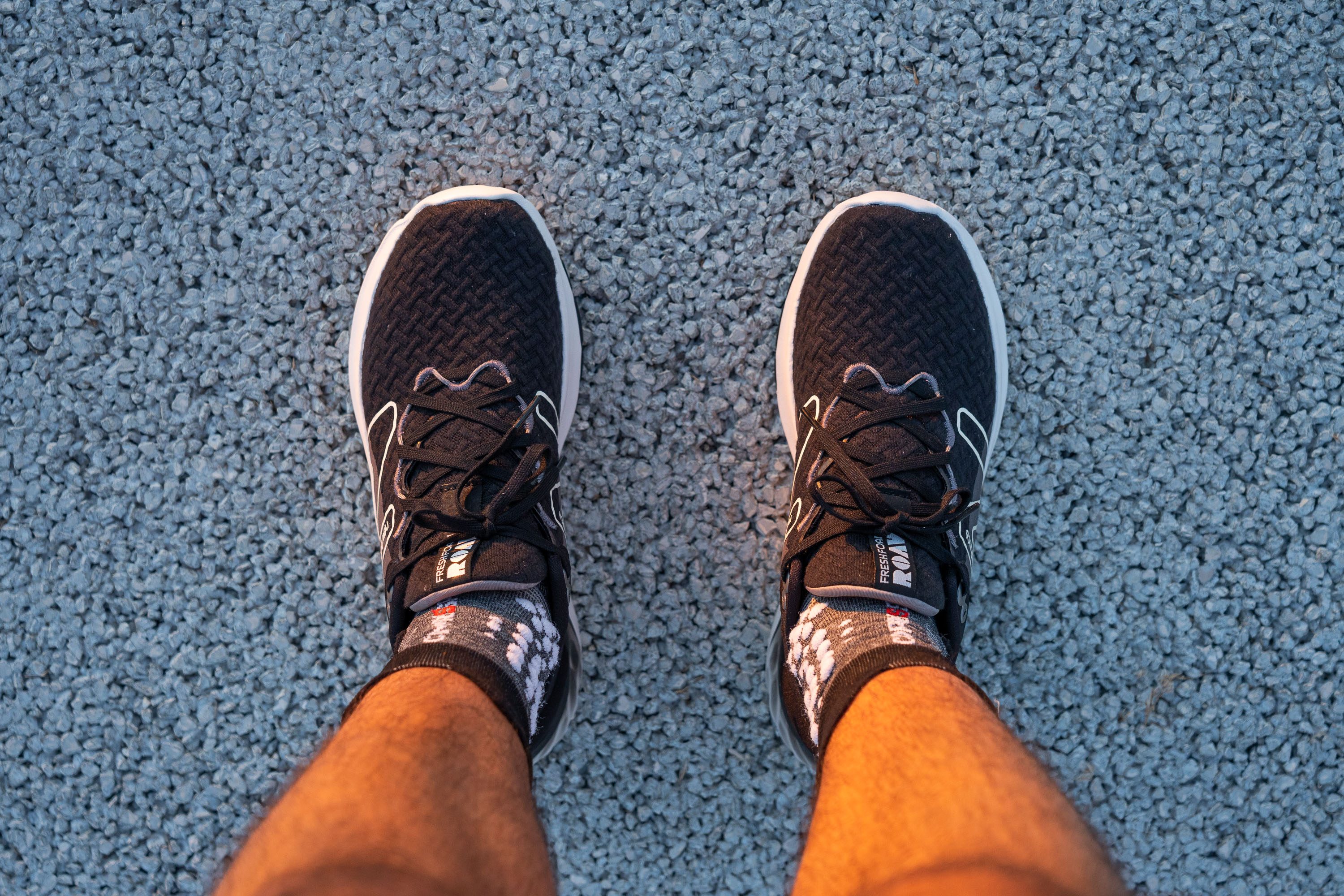
Measuring the toebox width in our lab, we found that the widest part of the forefoot is 97 mm. This is within the average range but nothing extra.
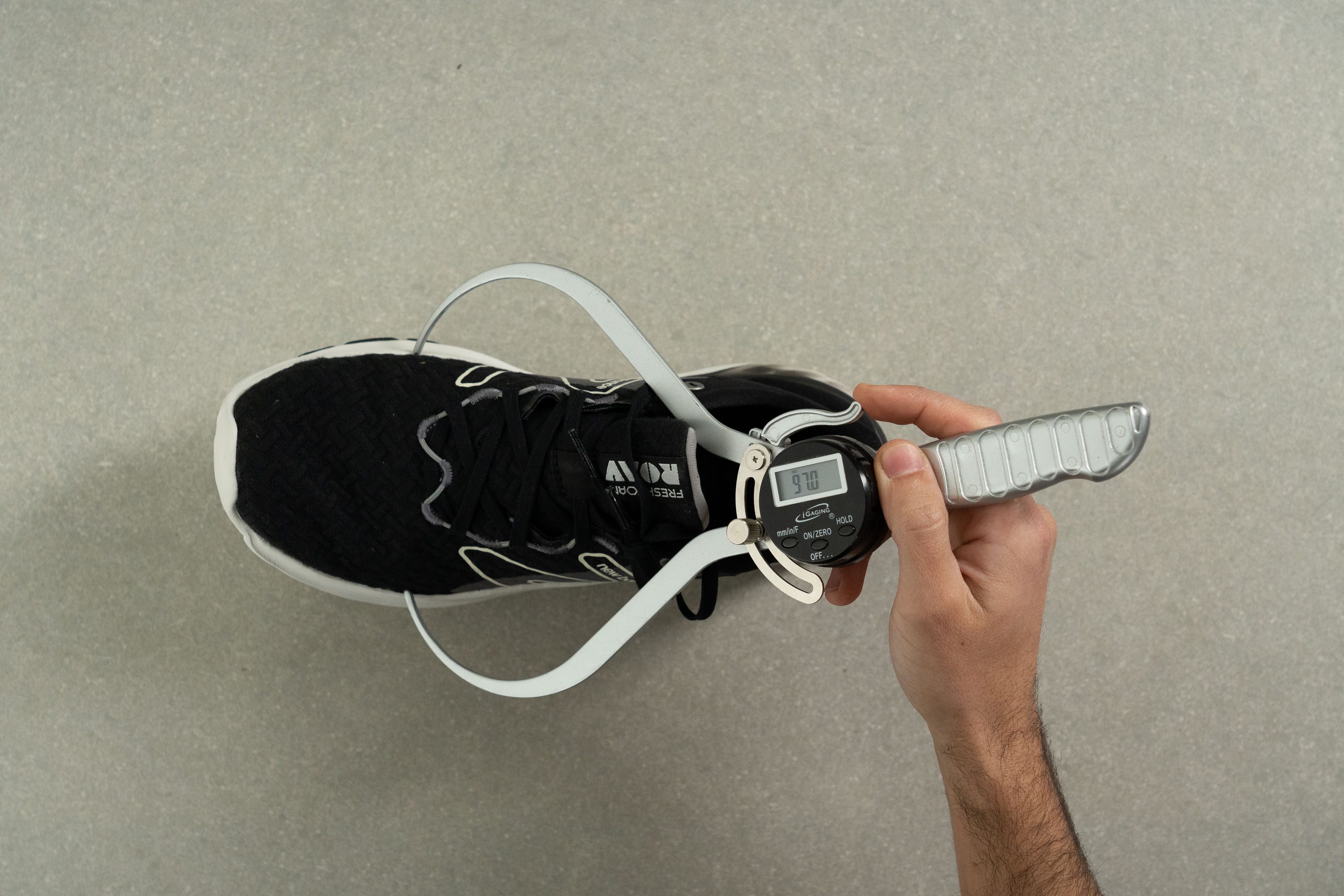
Perfect if you land on your heels
In our opinion, this shoe is best for the heel strikers. That’s because they can really get the most out of the 7 mm drop which makes the midsole more protective at the rearfoot.

New Balance claims that the shoe's drop is 8 mm. However, we found that the stack height at the rearfoot is 32.2 mm, and the height at the forefoot is 25 mm, which means the drop is just a little lower: 7.2 mm.
This is not a huge variance from the official statement, and given that in other running shoes we sometimes find much greater differences, it's certainly acceptable.
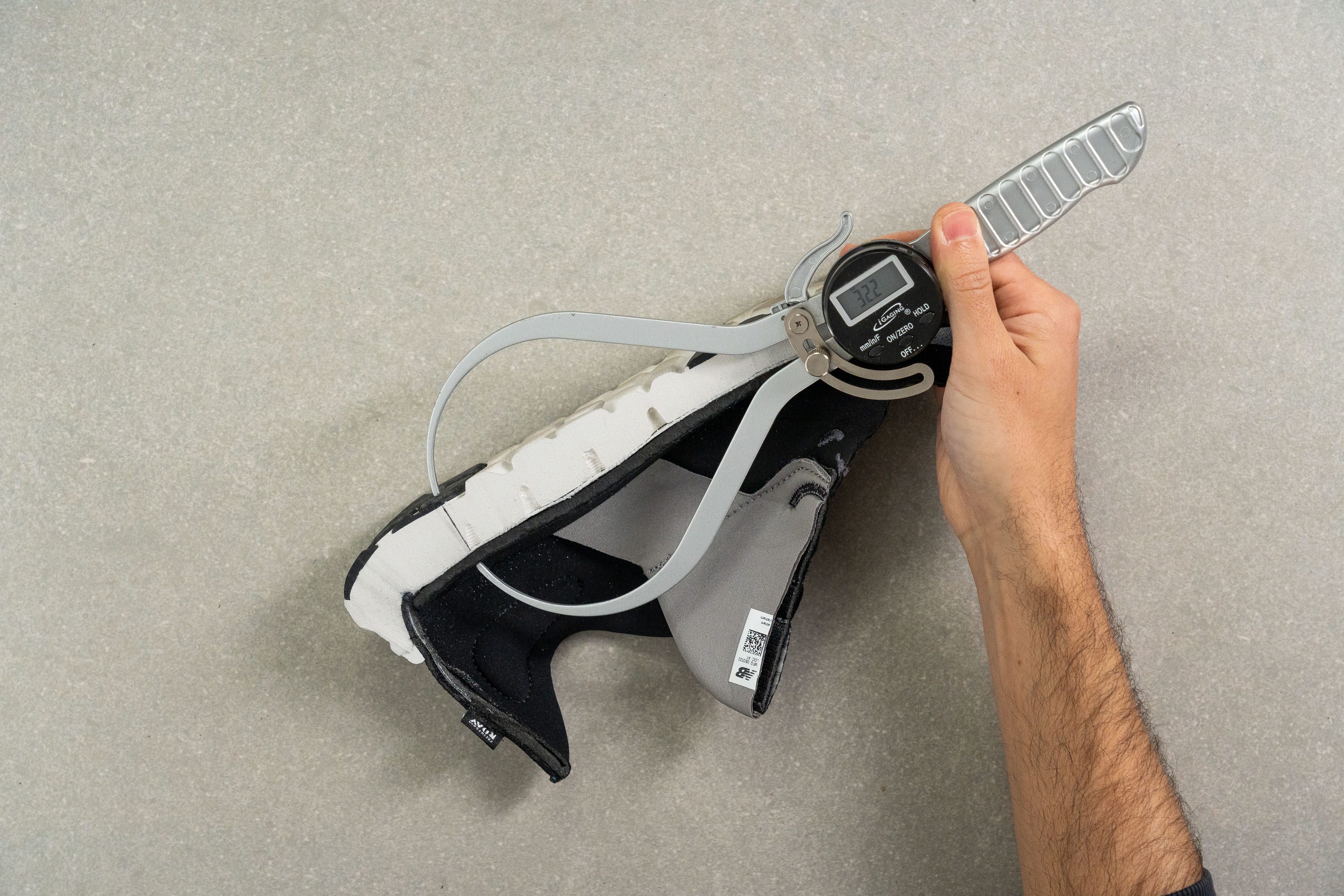
Our test showed that the insole measured 4.6 mm, very close to the average of 4.5 mm.
Fresh Foam Roav v2 is not just for running
When it comes to running, we recommend using this shoe for short efforts. It performs excellently at 5-10K distances.
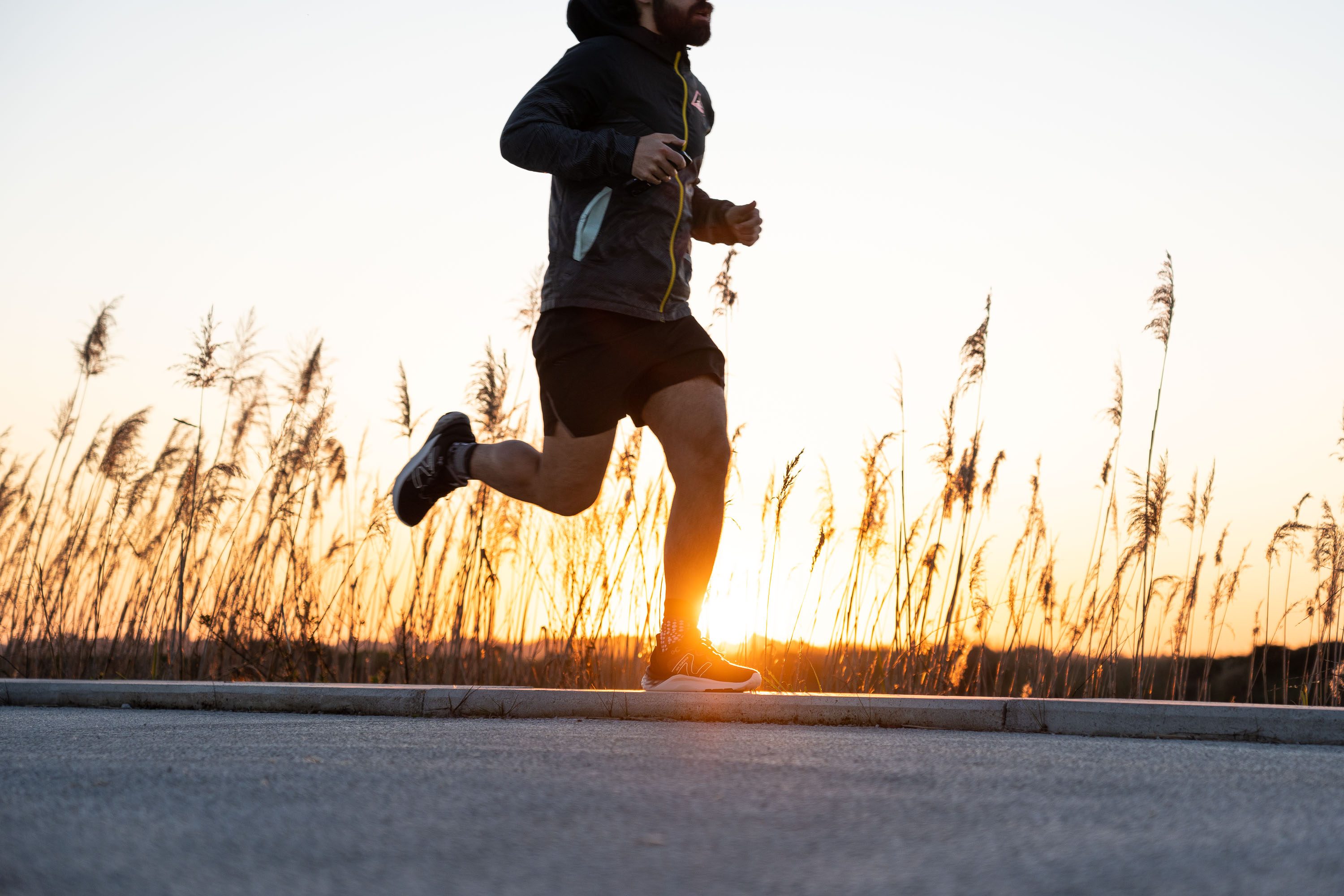
What's more, we even felt confident enough to take the Roav v2 to the gym. It was stable and responsive enough for agile HIIT and cross-training.
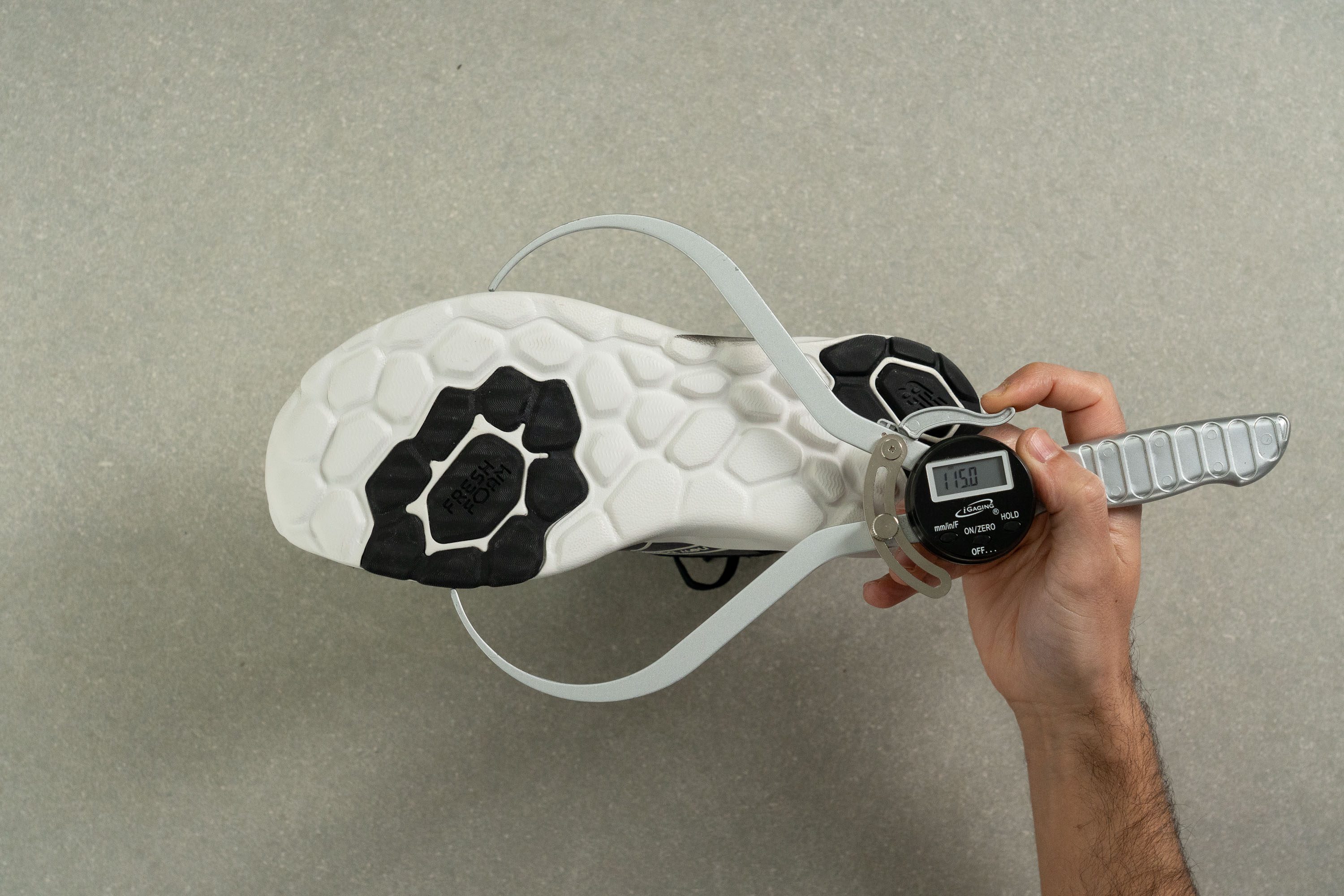
The Roav v2's platform is 115 mm large at the forefoot (2 mm wider than average). This and the slightly firm midsole enhance overall stability, which is important for gym workouts.
Feels even lighter than it is
Weighing 8.4 oz (238g), this New Balance shoe is more than an ounce lighter than the average road running shoe! We didn't even feel like we were wearing shoes!
Given the shoe's affordable price point, it’s a significant plus.
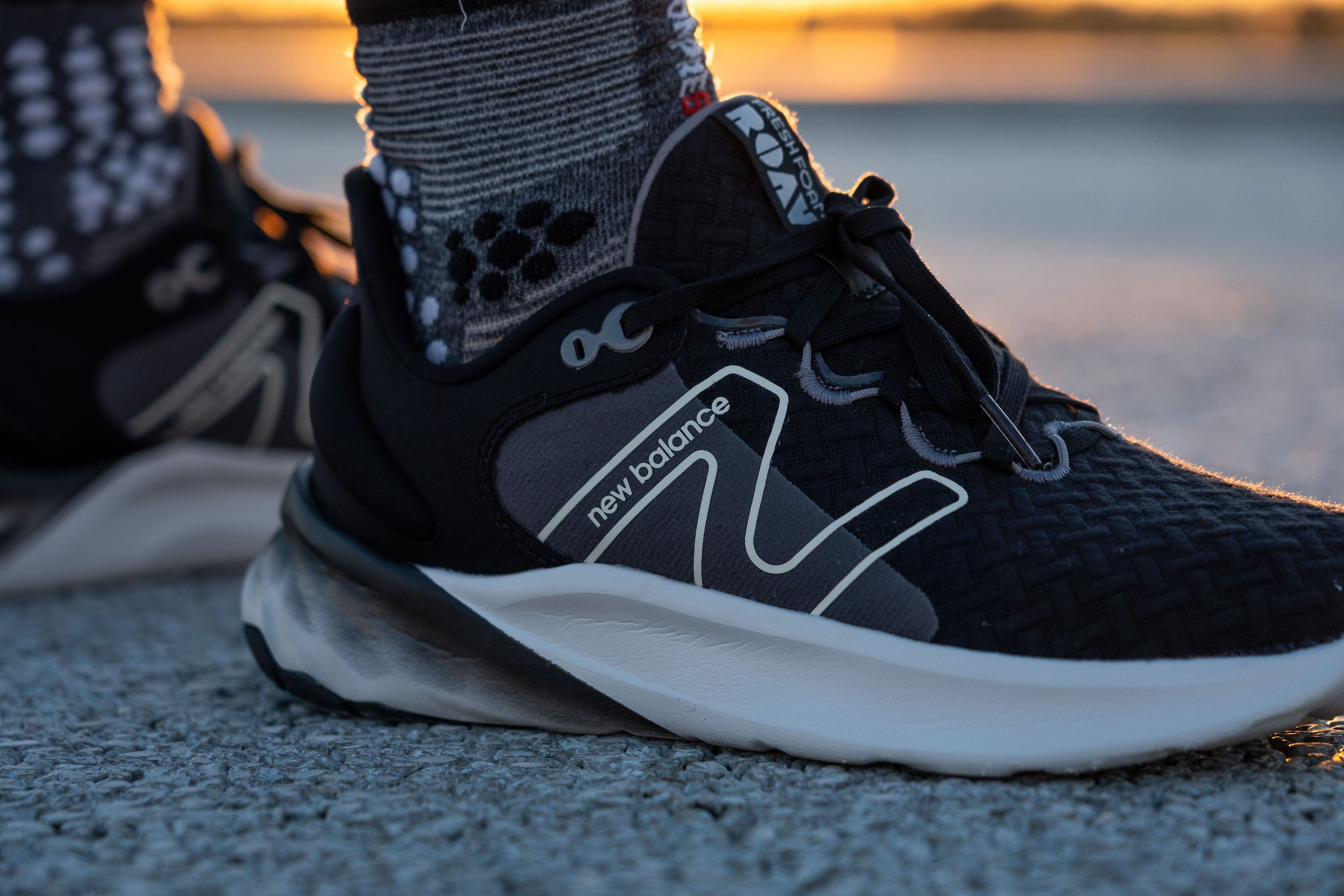
The outsole is the weak part
Having tested the shoe for about 30 miles, we noticed that the exposed foam at the bottom started to wear out pretty quickly. Therefore, we believe that the NB Fresh Foam Roav v2 cannot stand as many miles as other shoes do.
On the bright side, the most high-wear areas of the shoe have a really thick 4-mm rubber protection.
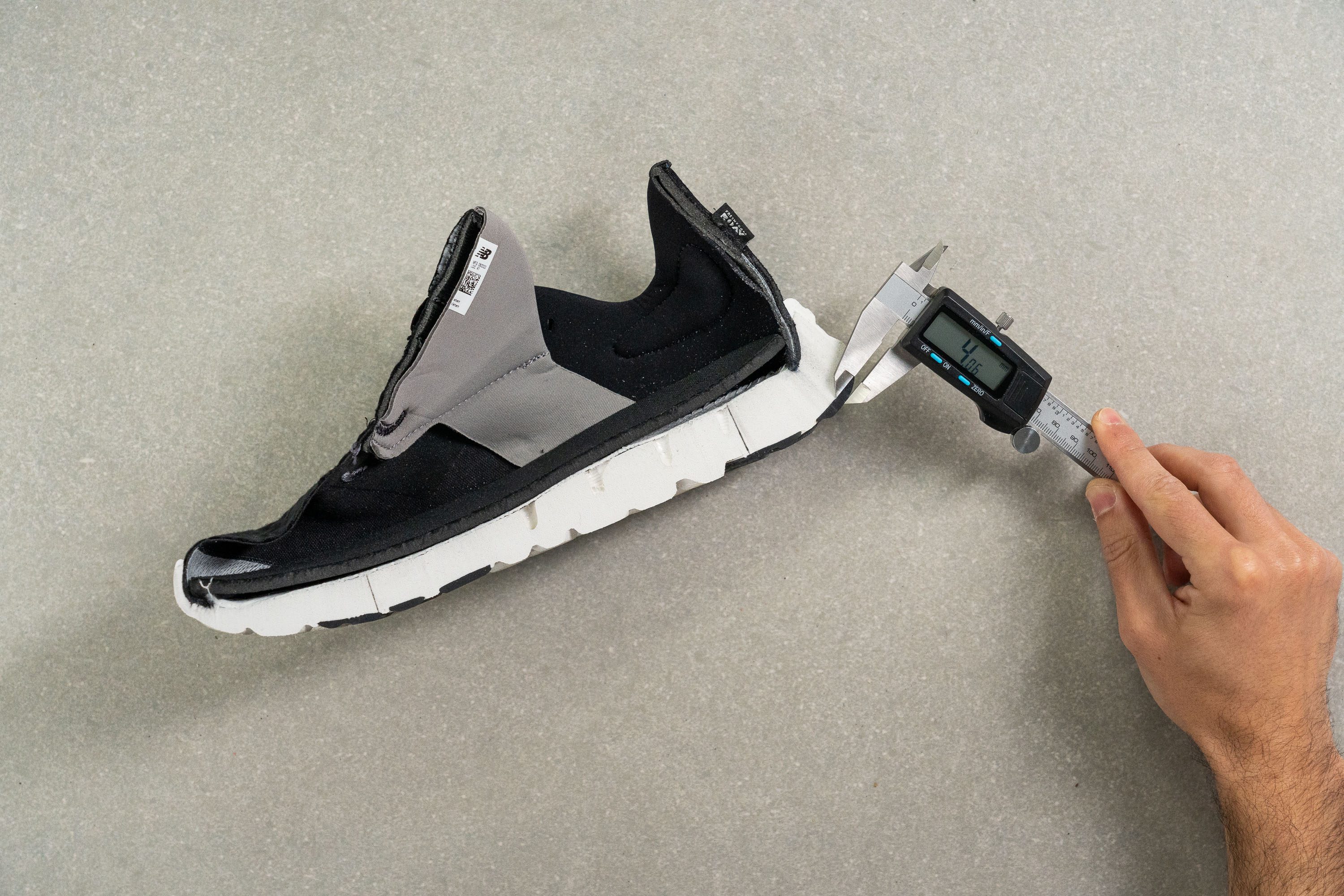
Easy to achieve a good lockdown
Unlike many other running shoes, this shoe uses flat laces instead of rounded ones. This makes it easier to fix them and while running there’s no need to adjust anything, they remain in place.
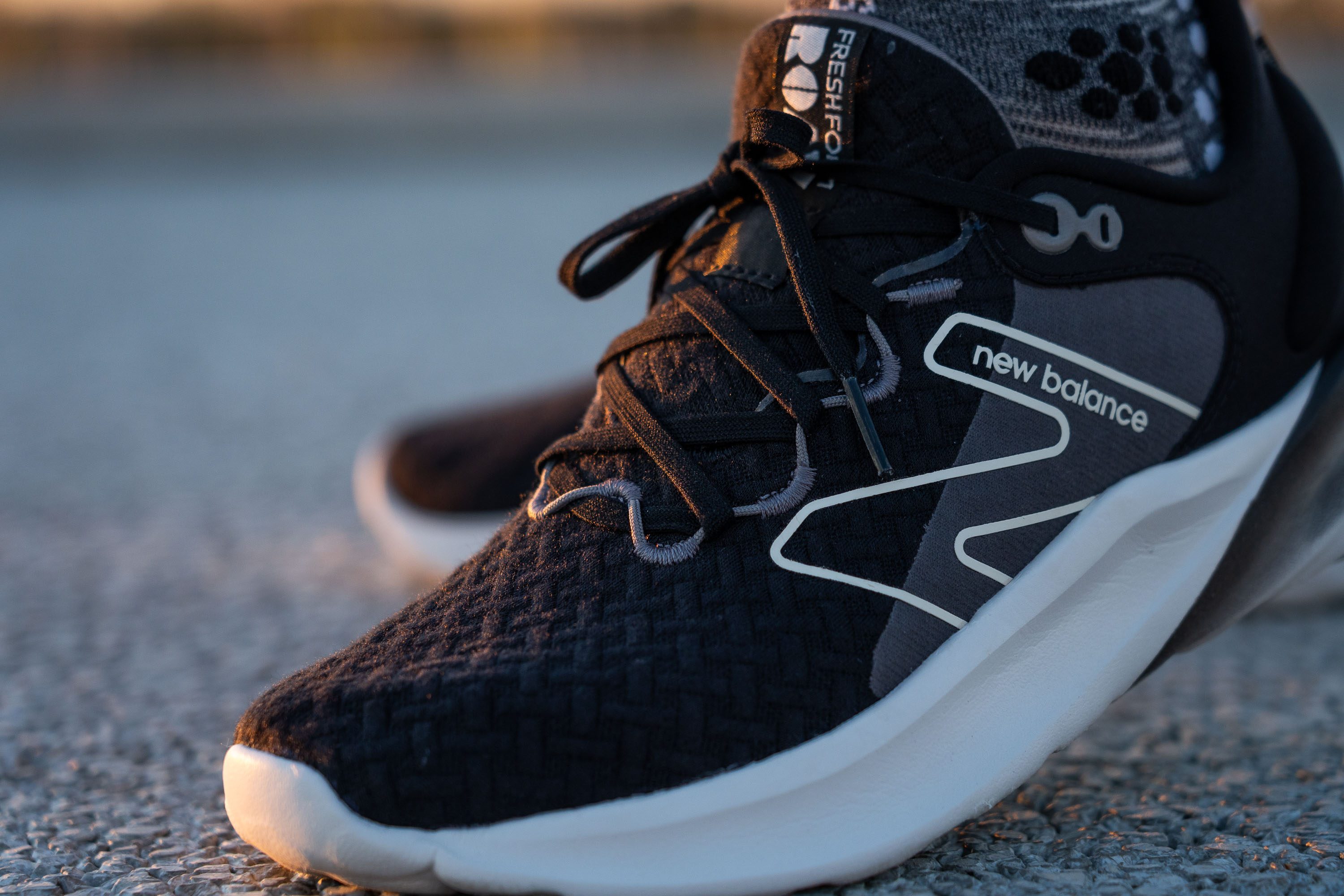
Plenty of colors for the New Balance Roav v2
There are more than a dozen colors available for this shoe! That’s indeed impressive and not something we see very often.
A win for the budget-minded
The shoe costs $85, which is very well below the average for a running shoe ($130).

